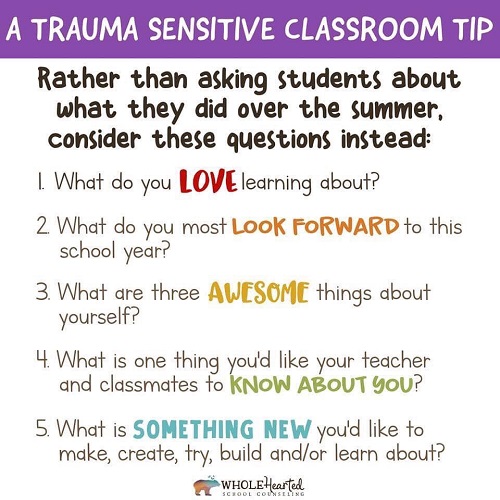WKU News
Talking about Tragedy and Trauma with Children: Resources for Educators and Parents
- T/TAS at WKU
- Wednesday, August 7th, 2019

From natural- to human-made disasters, the recent onslaught of traumatic events has prompted the Training and Technical Assistance Services (T/TAS) team at Western Kentucky University to share a few important resources, aimed at guiding adult conversations about tragedy and trauma with young children. Geared toward teachers, families, and other important adults in a young child's life, we hope you find this information useful:
- The Mayo Clinic Online, Helping Children Cope: Tips for Talking About Tragedy, addresses individualizing approaches depending upon a child's developmental level, from preschool to high school.
- The Cleveland Clinic, How to Talk to Your Kids About Tragedy, gives practical advice for answering children’s questions.
https://health.clevelandclinic.org/how-to-talk-to-your-kids-about-tragedy/
- The National Association of Elementary School Principals, Helping Children Cope with Tragedy, aimed at talking with elementary school children, but many of the basic concepts hold true for younger children--including limiting children's exposure to the media during and after a tragedy.
http://www.naesp.org/sites/default/files/RtP_Tragedy_English.pdf
- The T/TAS at WKU Managing Mental Health in Head Start, Early Head Start, Migrant & Seasonal, American Indian & Alaskan Native Programs training February 19-21, 2020 in Santa Fe, New Mexico will feature approaches to Trauma-Informed Care. (Workshop information available now, online registration open soon)
https://orgs.wku.edu/ttas/calendar/index.php?view=event&eventid=70254
- The U.S. Department of Health & Human Services, Head Start Program, Emergency Preparedness resources.
https://eclkc.ohs.acf.hhs.gov/safety-practices/article/emergency-preparedness
Here is a quick, helpful preschool tool developed by WholeHearted School Counseling to assist teachers in initiating and sustaining conversations and relationships with young children--whether they are experiencing trauma or not:
Rather than ask students about what they did over the summer, consider these questions instead:
- What do you LOVE learning about?
- What do you most LOOK FORWARD to this school year?
- What are three AWESOME things about yourself?
- What is one thing you'd like your teacher and classmates to KNOW ABOUT YOU?
- What is SOMETHING NEW you'd like to make, create, try, build and/or learn about?
No doubt, in today's ever-changing world, little eyes are watching and tiny ears are listening. So please don't forget to take care of yourself too--exercise, eat right, sleep well, and laugh. After all, our emotional state is reflected in the emotional state of the little ones around us!
(Article image used with permission/courtesy of @WholeHeartedSchoolCounseling1 https://www.facebook.com/WholeHeartedSchoolCounseling1/)
_______________________________________________________________
Paula Mydlenski, MS, Health & Mental Health Specialist
Training & Technical Assistance Services (T/TAS)
Western Kentucky University
800.882.7482
www.ttas.org
ttas.info@wku.edu
Advancing knowledge within early learning communities
Some of the links on this page may require additional software to view.

